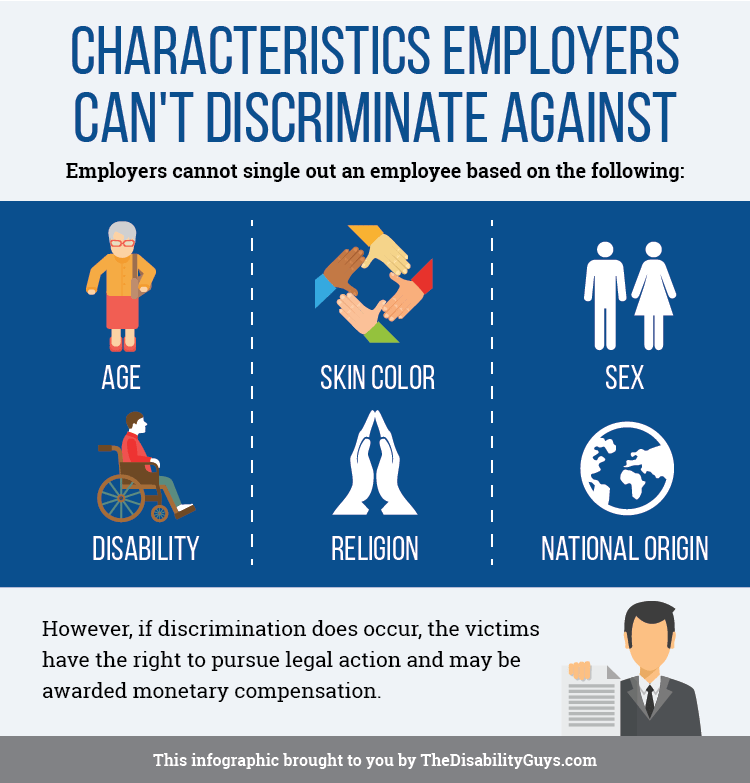The average American adult will spend decades of their lives working and it’s no secret that the majority of each weekday is spent on the job. While everyone has a rough day, week, or even month at work now and then, the fact is that sometimes a bad day is caused by a much deeper issue: the violation of workers’ rights through harassment and discrimination in the workplace.
Hostile Work Environments
Every single person on this planet has their own unique personality with their own likes and dislikes. While it is true that sometimes people just don’t like one another, that doesn’t mean that they have to treat the other person with anything less than basic respect. That being said, often people are simply not nice to one another. But feeling upset and harassed is different from having a valid legal case. Let’s take a look at the following definitions before we talk more about taking legal action.
Discrimination: The unfair treatment of an individual based on their characteristics.
Harassment: Using aggressive pressure to intimidate someone.
Discrimination and harassment come in many forms and can traumatize the victim.
New York Discrimination Laws
Every state has their own set of law which prohibits discrimination in the workplace. In New York, it is illegal to discriminate based on:
- Race
- Color
- Age
- Religion
- National Origin
- Genetic Information
- Citizenship
- Sex
- Familial Status
- Marital Status
- Gender Identity
- Lawful Use Of Any Product
- Political Activities
- Use Of A Service Dog
- Prior Arrests
- Domestic Violence Victim Status
The government agency that oversees discrimination is the Equal Employment Opportunity Commission (EEOC). However, just because there is a government agency doesn’t mean that the victims of workplace harassment and discrimination forgo contacting an attorney who can help them prove their case.
Share this Image On Your Site
How Can I Prove Harassment In The Workplace?
There are several things that need to be proven in order for a legal complaint to be valid.
The Victim Has To Have A Protected Characteristic
In order to have a case, the victim must be experiencing discrimination based on one of the above-protected characteristics in New York.
Offensive Conduct Must Have Occurred
Harassment can come in many forms including:
- Derogatory Jokes
- Name Calling
- Racial Slurs
- Threats
- Physical Violence
In some cases, the general threat is that the employee won’t be able to obtain something like a promotion or a raise because of their characteristic. In other cases, the constant harassment is so overwhelming that they are unable to complete their work.
The Conduct Must Be Unwelcome
While this might seem silly or obvious, it’s important the victim make it known that the conduct is unwelcome. For example, in sexual harassment cases, if the victim doesn’t make it clear that they don’t enjoy the lewd jokes or comments being made, it can be difficult to prove a case.
If you or someone you love feels that they are being harassed, it’s important to start collecting evidence as soon as possible. This may include:
- Emails
- Text Messages
- Witness Contact Information
- Witness Statements
- Copies Of Any Internal Complaints You Made
- A Personal Harassment Log
- Medical Records
- Objects Or Photos That Were Used To Harass
- Performance Reviews (both before and after the harassment started)
All of these may be useful when choosing to pursue legal action.
How Can Medical Records Help?
Not only does physical damage sometimes occur, but when constant harassment takes place, there is often emotional damage. When placed under extreme pressure, it’s not unusual for a victim to develop anxiety, depression, and even PTSD. While these conditions can be treated with medications and therapy, the emotional strain can take a toll on both the victim’s work and home life.
Showing that the victim developed a mental health disorder because of their hostile work environment may be difficult to talk about but can help prove a case.
What Can I Get From Taking Legal Action?
In addition to taking a stand and helping to prevent others from going through the traumatic experience that you have been through, a legal complaint may provide a plaintiff with:
- monetary damages
- the removal of the offender from the workplace
- a transfer to a new unit or shift
- changes in workplace policy
- attorney’s fees
This is of course in addition to providing the plaintiff with a sense that justice has been served.



